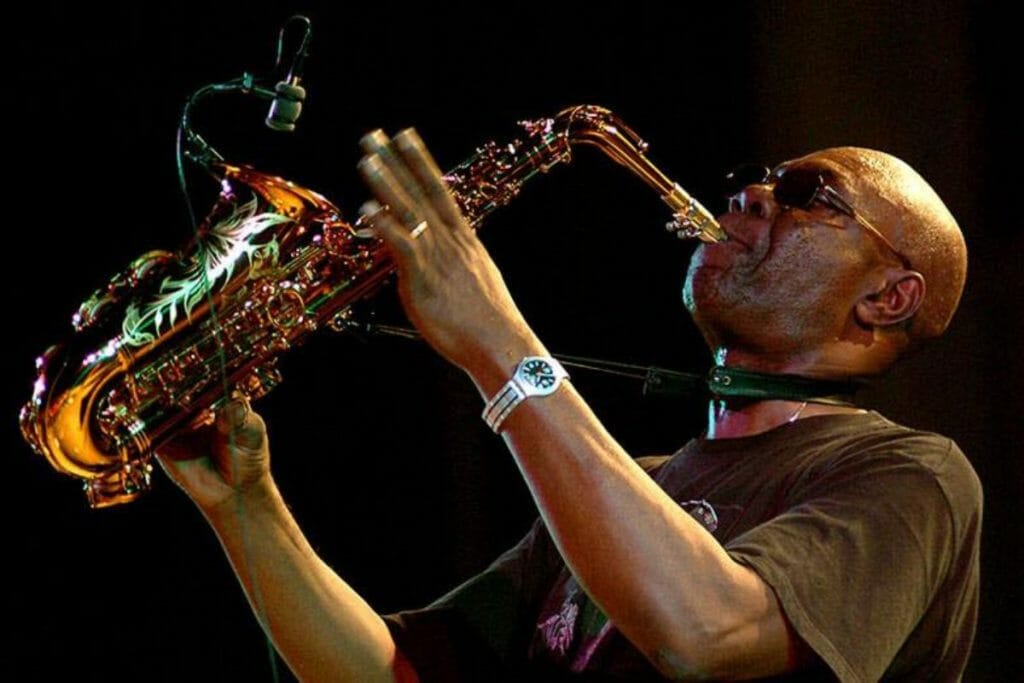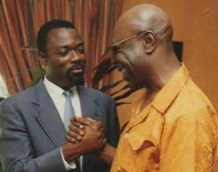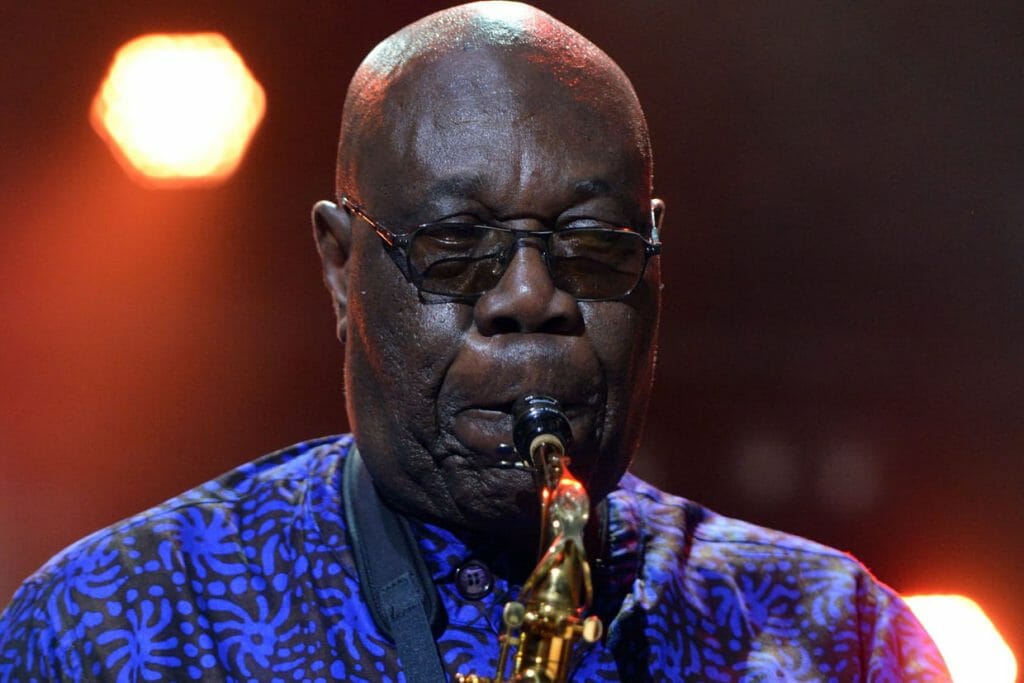African music legend Manu Dibango succumbs to coronavirus attack

BY SOUMANOU SALIFOU
African music legend Manu Dibango today lost the battle against codiv-19 for which he was hospitalized a week ago in France where he lived. Dibango, the oldest ambassador of African music throughout the world—whom “The African Magazine” had the honor of interviewing one-on-one a decade ago—died at 86 leaving an impressive legacy spanning six decades that has earned him a spot in the pantheon of world music history right next to his elders, the legendary William Armstrong and Duke Ellington.
DASHED HOPE
There appeared to be hope even after the godfather of “Soul Makossa”, a 1972 hit named after the Cameroonian style of music makossa, was released from hospital on 18 March. In response to the growing rumor about the super-star’s health, his manager, Claire Diboa, reassured his fans by writing on his Facebook page that “after a recent hospitalization due to the coronavirus, Manu Dibango is resting and recuperating in serenity.” She goes on to ask the public to “respect” his privacy, then strikes a note of optimism:
“He looks forward to seeing you again soon, and asks you, in this troubled time we are all going through, to take care of yourselves.”

MANU DIBANGO ONE-ON-ONE WITH “THE AFRICAN MAGAZINE”
In our decades-long efforts, dating back to the pre-Internet age, to shine light on African culture in America, “The African Magazine” was honored to have a one-on-one interview with Manu Dibango exactly a decade ago, when our paths crossed in Africa. That followed the high-profile launching in February 2010 of a new line of fabrics by a European textile company that had invited Manu Dibango to grace the evening with his towering musical talents.
Rediscovering African music legend Manu Dibango
It was obvious that despite his then-66 years of age, Manu was an ageless legend enjoyed by fans who cut across generational and continental boundaries.
In today’s world saturated with superlatives, to call Manu Dibango a “music legend” sounds a little like an understatement. For, before Manu—a professional musician for the past 65 years—conquered the world in 1972 with his hit Soul Makossa, which sold millions of albums throughout the world, Africa had only one internationally-acclaimed entertainer, the legendary Myriam Makeba of South Africa. However, Makeba, in addition to her immense talents, was also aided by politics: her courageous fight against the racist apartheid regime that had banned her and caused her to go in exile. Manu Dibango conquered the world with nothing but his musical talents.

A LEGACY AS VAST AS THE AFRICAN CONTINENT
Manu’s 1973 performance at the Olympia, in France, after the release of Soul Makossa, was nothing short of a triumph. What more reason did he need to try to conquer America? This proved to be a piece of cake. Indeed, 40,000 fans showed up to see him at Yankee Stadium in New York in 1973. But that was nothing, one could say, compared to the 354,000 who flooded the Madison Square Garden to see the African superstar who, thus, became the cultural bridge between the United States (the Mecca of entertainment), Europe (where he was living and where his genius blossomed), and Africa (his motherland.) Manu settled in the United States and lived here from 1973 to 1975.
A controversy then brewed between the African superstar and American superstar Michael Jackson. The latter, in his album Thriller, as Manu put it during an interview with me, “made some borrowings that he did not feel necessary to declare.” The “borrowings” were from Manu’s hit Soul Makossa. The matter went in the hands of the lawyers and dragged on for two years. In the end, an out-of-court settlement put it to rest.
LASTING INFLUENCE ON GENERATIONS OF AFRICAN TALENTS
Manu Dibango, who lived in France for several decades, has influenced several generations of African talents. He described as “a great experience and a unique south-south cooperation” his stay in Côte d’Ivoire from 1975 to 1980, right after his American experience, to train the National Ivorian TV station band, and help several musical talents come to life. Manu told me, with nostalgia:
“I wonder whether such a cooperation would take place again today, given the narrow and feverish nationalistic feelings that have permeated some of our countries.”
In France, Manu continued to assist several African entertainers.
“How do you define your musical genre?” I asked Manu, who answered he has no genre. “I have a style, the Manu style, but it is not a genre.” For sure, the most common theme in his music is love, but Manu says he has also sung about “Afrique sans fric” (Africa without money), saying that there is “Africa without money” and “Africa with money,” depending on where you stand on the social ladder.”
I was also curious to know whether Manu, who had been around long before the Rap generation, likes this popular American musical phenomenon. His answer:
“You know, that is as old as the world. Of course, it has become more sophisticated. It’s a style, and it will pass like all the styles.”
The African music legend (I mean the world music legend) in Manu feels that every musical style brings something good to the listener. He says one has to listen to music with an “open mind” in order to know what to get from it. “You can always learn something here and there.” Even in Techno, a musical style Manu says he cannot listen to all night, he says he finds something interesting.
The legend has joined elders like William Armstrong, Duke Ellington, Myriam Makeba and hosts of others, but his immense contribution to world’s culture through his massive musical legacy, his perpetual joie de vivre, his simplicity and strong Pan-Africanism spirit will be around for a long time.

